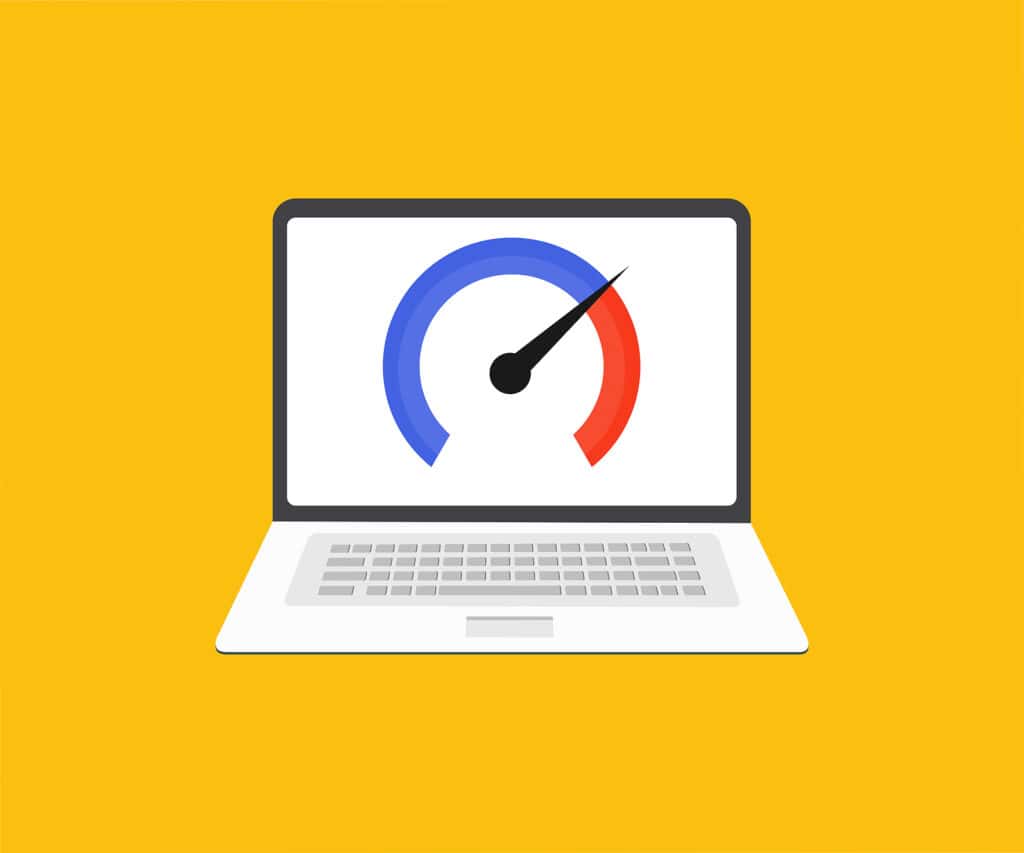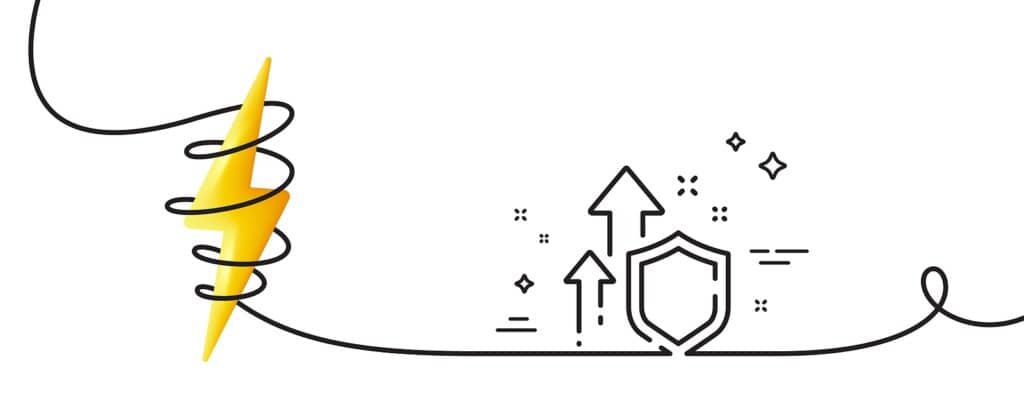Improve Power Quality
From my personal journey into the world of electrical systems, I've realized how pivotal power quality is, especially in modern times when technology and intricate electrical devices play such a central role in our day-to-day activities. As someone deeply interested in research environments, I've been drawn to explore how research laboratories, with their delicate and precise instruments, are so vulnerable to power quality fluctuations.
When I first delved into this topic, I learned that even minor deviations in power quality can lead to skewed readings or worse, damage to these high-priced instruments. Through this article, I wish to demystify the nuances of power quality, highlight its significance in such sensitive environments, share insights on how to bolster it and guide readers on where to find the right tools to ensure optimal power integrity.
What is Power Quality?
Power quality refers to the consistency and suitability of electrical power provided to consumers and its ability to support and maintain the seamless operation of equipment and systems connected to the grid. At its core, power quality assesses the “cleanliness” and stability of the electrical voltage and current waveforms, ensuring they remain within predefined standards and are free from distortions or anomalies.
Several factors can influence power quality, including voltage fluctuations, frequency variations, harmonic distortions, and transient disturbances. When power quality is optimal, electrical devices operate efficiently and with minimal risk of damage. Conversely, poor power quality can lead to equipment malfunctions, decreased lifespan of appliances, and increased energy costs

Why is Power Quality Important?
The importance of power quality cannot be understated, as it is fundamental to the robust and efficient operation of modern electrical systems. Let's delve deeper into why maintaining excellent power quality is crucial:
Optimizing Performance of Electrical Devices
Just as a car runs best on high-quality fuel, electrical devices, from household appliances to industrial machinery, operate at their peak performance when supplied with clean and consistent power. Distortions or fluctuations in power can degrade the performance of these devices, causing them to operate below their potential.
Minimizing Equipment Downtime and Failures
Poor power quality, characterized by phenomena like voltage sags, harmonics, and transients, can exert undue stress on equipment components. This can result in a shorter lifespan for the equipment and lead to frequent breakdowns, disrupting operations, especially in industrial and commercial settings.
Safety Concerns
Power quality disturbances, such as spikes, surges, or brownouts, don't just harm equipment; they can pose significant safety risks. They can lead to electrical fires or cause safety mechanisms to fail, endangering both users and the surrounding environment.
Economic Implications
Consistently good power quality translates to energy efficiency. When electrical devices operate efficiently, they consume only the energy they need, reducing wastage. This not only helps conserve precious energy resources but also results in considerable savings on electricity bills for both residential and commercial consumers.
Common Power Quality Problems
Recognizing and understanding the various power quality issues is essential for effective diagnosis and remediation. Delving deeper, here are some of the most prevalent power quality disturbances, elaborated for clarity:
Voltage Sags or Dips
These are short-term reductions in the voltage levels, usually lasting from a few milliseconds to a couple of seconds. They are typically caused by the start-up of large loads, like motors, or by short circuits. While brief, these sags can disrupt or even damage sensitive equipment, leading to operational issues.
Voltage Swells
Opposite to voltage sags, swells are short increases in voltage levels that last for a few cycles to a few seconds. They often result from the rapid disconnection of large loads or a fault in the power system, such as an open neutral. Over time, repeated voltage swells can wear down electrical components and reduce equipment lifespans.
Transient Over-voltages
These are very short-duration spikes in voltage, lasting only a few milliseconds. Often the result of lightning strikes, switching operations, or the disconnection of inductive loads, transient over-voltages can introduce significant stress to electrical systems and can damage unprotected equipment.
Harmonics
In an ideal scenario, electrical power has a pure sine wave form. However, many modern electrical devices, such as computers and variable speed drives, can introduce distortions to this wave form, producing harmonic frequencies. These harmonics can lead to overheating in wiring and equipment, decreased efficiency, and unexpected equipment malfunctions.
Frequency Variations
The standard power frequency in most regions is either 50Hz or 60Hz. Variations from this standard can arise due to imbalances between the generation and load or issues with generators. Equipment designed for a specific frequency might malfunction or get damaged if exposed to altered frequencies for extended periods.
Outages
Often the most noticeable of power quality issues, outages refer to the complete interruption of the power supply. They can be caused by numerous factors, ranging from equipment failures, natural disasters, to routine maintenance operations. While short-term outages are often merely inconvenient, prolonged ones can result in significant operational and economic impacts.
How to Improve Power Quality
The optimization of power quality is critical for the effective functioning of electrical devices and systems. Enhancing power quality may appear challenging, but by deploying thoughtful and tailored approaches, significant improvements can be realized. Here's a deeper dive into some effective strategies:
Power Conditioning Equipment
- Surge Suppressors: These devices protect electrical appliances from voltage spikes by diverting the excess voltage to the ground.
- Uninterruptible Power Supplies (UPS): A UPS offers battery backup when the electrical power fails or drops to an unacceptable voltage level, ensuring that devices continue to operate without interruption.
- Line Conditioners: Acting as intermediaries between the power source and your devices, line conditioners adjust and clean the electricity to deliver a continuous, smooth voltage.
Harmonic Filters
As electrical systems become populated with modern devices that produce harmonics, harmonic filters become vital. They are designed to negate the adverse effects of these distortions. By capturing and diverting harmonic currents, these filters ensure the delivery of undistorted power to connected devices, preventing potential overheating and malfunctions.
Grounding
The importance of an effective grounding system cannot be emphasized enough. Grounding serves as a protective pathway, redirecting unwanted currents away from sensitive equipment and towards the earth. Properly grounded systems safeguard against voltage spikes, static electricity, and other transient disturbances, enhancing the overall reliability and safety of the electrical network.
Regular Monitoring and Maintenance
- Power Quality Analyzers: These devices continuously track the quality of power, identifying anomalies or disturbances. By promptly detecting issues, interventions can be made before significant damage occurs.
- Infrastructure Maintenance: Periodic inspection and upkeep of electrical components, wiring, and connections ensure the system remains in prime condition, reducing the chance of disruptions due to wear and tear.
Capacitor Banks
Power factor correction is essential for efficient energy utilization. Capacitor banks are introduced into electrical networks to correct power factor discrepancies, decreasing energy wastage and reducing electricity costs.
Distributed Generation
Integrating localized energy sources, like solar panels or wind turbines, into the electrical system not only reduces dependency on the central grid but also offers a more resilient power source. These renewable sources, being decentralized, can supply consistent and cleaner energy, alleviating strain on the main grid and ensuring more reliable power availability.

Where to Get Power Quality Improvement Tools
The enhancement of power quality is pivotal in today's electrical landscape, and a plethora of sources offer specialized tools for this purpose. For those looking to invest in these tools, it's beneficial to understand where to find them and what to expect:
Major Electrical Manufacturers
- Companies Overview: Renowned corporations such as Siemens, ABB, and Schneider Electric not only produce general electrical equipment but also have dedicated lines for power quality improvement.
- Product Range: Their offerings span from power conditioners, harmonic filters, capacitor banks to advanced management systems that offer comprehensive solutions for diverse power quality challenges.
Specialized Companies
- Specific Focus: Certain entities like Fluke and Dranetz have carved a niche for themselves by concentrating exclusively on power quality instrumentation and solutions.
- Expertise: Owing to their specialization, they frequently innovate in the realm of power quality analyzers, monitoring systems, and diagnostic tools, ensuring that users have access to state-of-the-art equipment.
Local Electrical Distributors
- Accessibility: For those who prefer to inspect products in person or need immediate access, local electrical suppliers can be invaluable. They usually have a catalog of products that cater to regional power quality needs.
- Tailored Advice: These distributors often possess insights into local electrical challenges and can provide guidance on selecting the most suitable tools for specific scenarios.
Online Retailers
- Extensive Catalog: E-commerce giants like Amazon and Alibaba offer an exhaustive array of power quality tools. These platforms provide options ranging from fundamental surge protectors for household use to sophisticated analyzers for industrial applications.
- User Reviews: One advantage of shopping on these platforms is the availability of user reviews. Potential buyers can gain insights from other users' experiences, aiding in making informed decisions.
FAQs on Enhancing Electrical Power Quality
What exactly is power quality?
Power quality pertains to how closely the voltage, frequency, and waveform of an electrical system match the set standards or norms. When these parameters align with the standards, it signifies that electrical devices and appliances can run both effectively and safely.
What makes power quality so crucial?
The importance of power quality stems from its implications. A compromised power quality can lead to various drawbacks, such as decreased efficiency of appliances, a shortened lifespan for devices, heightened risks to safety, and a surge in electricity bills. Essentially, ensuring power quality is akin to ensuring that all your electrical devices receive a steady, undistorted, and optimal power supply.
Which issues typically arise from suboptimal power quality?
Several complications can result from poor power quality. These encompass voltage sags or dips, spikes in voltage or voltage swells, brief over-voltages known as transients, distortions due to harmonics, irregularities in frequency, and even total power outages.
How do I detect issues with power quality?
Employing power quality analyzers or monitors is the best method to spot irregularities or disturbances in your power supply. Engaging in consistent monitoring will assist in pinpointing problems before they worsen or cause significant damage.
Could you explain harmonic filters and their purpose?
Harmonic filters are specialized devices designed to detect and reroute harmonic currents away from the main power system. Their primary function is to ensure that the electrical system is fed only with pure, distortion-free power.
How does grounding contribute to better power quality?
Grounding plays a pivotal role in elevating power quality. A proficiently grounded system is adept at countering several power issues, notably transient disturbances and unexpected voltage spikes. Grounding offers a secure route for any surplus current to flow into the Earth, shielding devices from potential damage and safeguarding individuals from hazards.
Is it possible for renewable energy sources, like solar panels, to enhance power quality?
Absolutely! Integrating local renewable energy resources, such as solar or wind energy, can alleviate the burden on the main grid. Often, these sources offer a purer and more consistent power output. Additionally, distributed generation approaches, where power is generated close to its point of consumption, can notably diminish transmission losses.
Where should I look if I want to buy tools to enhance power quality?
For tools dedicated to power quality enhancement, consider renowned electrical manufacturers like Siemens or ABB. There are also niche companies, for instance, Fluke, which specialize in this domain. Alternatively, local electrical supply stores or popular online platforms like Amazon can be great places to shop.
What role do capacitor banks play in improving power quality?
Capacitor banks are integral to rectifying power factor discrepancies in electrical networks. By optimizing the power factor, these banks boost the system's efficiency and ensure that the power is utilized to its fullest potential, reducing wastage.
Is it necessary to engage a professional to assess and upgrade my power quality?
While you can use some elementary tools to gauge power quality independently, seeking guidance from professionals is often advisable. This is particularly true when you're grappling with intricate problems or when you're considering the adoption of comprehensive solutions to uplift your power quality.
Conclusion
As I reflect on my journey into the intricate world of electrical systems and power quality, it becomes abundantly clear just how vital this often-overlooked aspect truly is. From my early curiosity about the delicate instruments in research labs to a broader understanding of global electrical landscapes, it's undeniable: power quality touches every facet of our modern life.
In homes, businesses, industries, and even our environment, maintaining optimal power quality ensures not only efficiency but also safety and longevity. It's not just about preserving equipment or reducing electricity bills – it's about creating a sustainable, reliable, and resilient world.
And while the world of power quality may seem daunting, with the right tools, knowledge, and dedication, anyone can embark on this enlightening journey. Whether you're a homeowner, a researcher, or someone with a penchant for understanding the intricacies of electrical systems, remember that every effort made towards enhancing power quality is a step towards a brighter, more sustainable future.
Sources
https://premium-power.com/5-ways-to-ensure-better-power-quality/
https://www.newark.com/pdfs/techarticles/sola/totalPQSolutionIndustrialElectricalReliability.pdf

